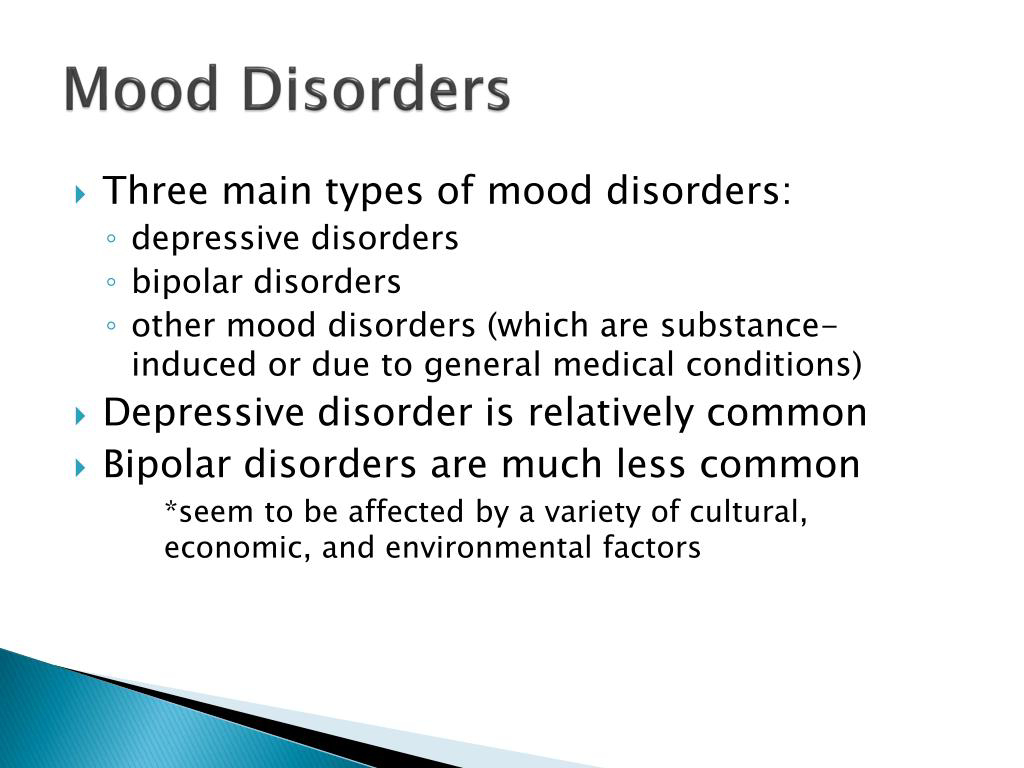Mood Disorders - Types, Symptoms & Causes
What is mood disorder?
Mood disorder is a condition that affects a person's moods and it's other related functions. This usually includes all different types of depressions and bipolar disorders. Symptoms for this may range from extremely low to extremely high or manic.
What are the types of mood disorders?
Mood disorders are classified into bipolar disorder and depressive disorders. Main types of mood disorders include:
Major depressive disorder - This involves long periods of extreme sadness, hopelessness and/or fatigue that last for 2 or more weeks.
Bipolar I disorder - This includes euphoria and/or irritable moods and increased energy or activities that can result in painful consequences.
Bipolar II Disorder - One episode of current & past hypomania, which is a less severe form of mania, and at least one episode of current or past major depression. And also criteria for mania, hypomania and major depression remain the same for this disorder type.
Cyclothymic disorders - this requires at least a 2 year history minimum of many episodes of not quite hypomanic and not quite major depression.
What are the common symptoms ?
Children may have physical symptoms of depression, like unexplained headaches or stomach aches. Mood disorders can have different effects on the lifestyle of the patient.
General symptoms include:
Loss of interest in activities you once enjoyed
Eating more or less than usual
Difficulty sleeping or sleeping more than usual
Fatigue
Crying
Anxiety
Feeling "flat," like you just don't have the energy to care
Feeling isolated, sad, hopeless, and worthless
Difficulty concentrating
Problems making decisions
Feelings of guilt
Irritability
Thoughts of dying and/or suicide
What are the causes of mood disorders?
Exact reasons for the disorder are not known. Chemical imbalances in the brain are the most likely cause, stressful life events like death, divorce, or trauma can also trigger depression, especially if a person already has it before or there's a genetic component.
How to diagnose Mood disorders?
Mental health professionals or psychiatrists evaluate and diagnose the disorder to provide appropriate treatment.
Diagnosis is done by performing a physical exam to rule out any physical reasons for symptoms, as well as by a psychiatric evaluation.
What is treatment ?
Treatment helps in improving the quality of life upon successful completion of a course of treatment that includes psychotherapy, also known as talk therapy, as well as medications to help regulate the chemical imbalances in a patient's brain. A combination of psychotherapy and medication is often the best course of action to get you on the road to feeling better.




